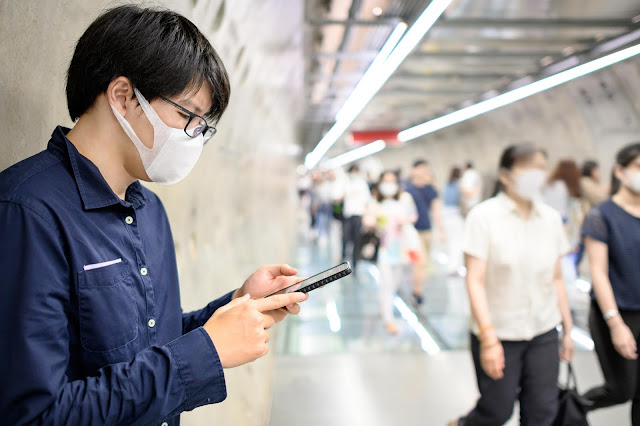COVID-19: A boon or bane for sustainability?
By Natalie Tham
The global pandemic has drastically altered the ways in which we live and work.
In cities where lockdowns have taken place, trains and buses have stopped operating, industrial production has slowed or even halted, and individuals have curtailed unnecessary travel, confining themselves to their homes. The environmental impact of these changes has been felt almost instantaneously: Murky waters in Venice have become clear, NASA has reported that pollution levels over China and Northern Italy are the lowest it has seen in years, and in New York, one of the worst-hit US cities, scientists have reported a drop of 5-10% in carbon dioxide emissions.
 |
And as
more governments shut their borders to tourists in an effort to minimise the
spread of the virus, airlines worldwide have been forced to cancel hundreds of
flights in a travel-hostile environment. As the economic upheaval is predicted
to crush airlines and strain economies, the only silver lining appears to be
that of the sharp fall in carbon emissions stemming from the lack of air
travel.
If
anything good has come out of this public health crisis, it is the healing of
the Earth.
But of
course, COVID-19 is not our generation’s one-off solution to climate change.
The need to fight climate change still persists. In Hubei, the epicentre of the
outbreak, officials have lifted travel restrictions in response to the fall in
infection rates. People are starting to go about their daily lives as per
normal. In several months’ time, when the outbreak is over worldwide, and
lockdowns everywhere are lifted, we can expect to see carbon emissions rise to
the same levels pre-outbreak. Economists have even argued that carbon emissions
may rise steeply as companies double up on production to make up for the lost
profit.
Notwithstanding
this possibility, COVID-19 may still bring about long-term environmental
positives.
As more
individuals work from home, more are able to afford time to follow through with
plans to install solar PV systems. Here at SolarPVExchange alone, we have seen
a fourfold increase in residential enquiries regarding the installation of
solar PV systems. This means that a greater number of people will install solar
PV systems, which greatly reduces their carbon footprint, thus cutting carbon
emissions.
Furthermore,
as more families stay at home instead of travelling, installations of solar PV
systems are not disrupted by travel plans, thus we can expect to see a
sustained increase in the number of homeowners purchasing solar PV systems.
Moreover,
as millions of employees worldwide have had to telecommute to work without
being in the office, if successful, companies may continue to allow more
instances of telecommuting in the future. This will directly reduce energy
consumption and thus decelerate the pace of climate change.
Ultimately,
whether or not COVID-19 will be a boon or bane for sustainability depends on
the actions of corporations and the political will of governments to take
tangible steps into the sustainable direction. Meanwhile, let us exercise social responsibility and avoid crowded places. When at home, we should strive to conserve energy as much as we can for a more sustainable future.


Comments
Post a Comment